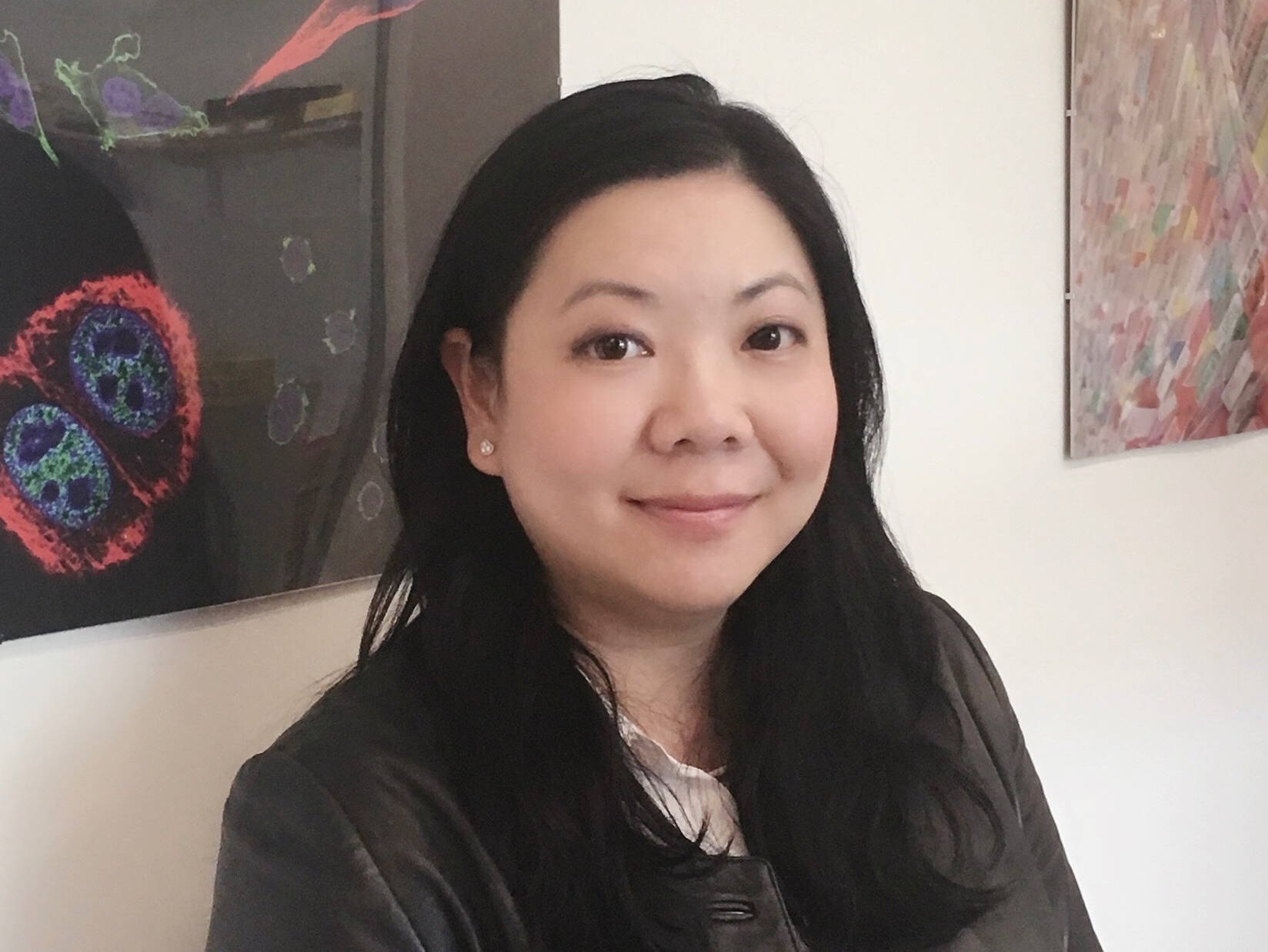
Image: Milana and Xixuan at a scientific conference.
Presenting at scientific conferences and meetings is a key part of any researcher’s career – and for more junior scientists they can be pivotal moments in their professional development. They’re an opportunity to meet others in the field and share ideas – as well as an opportunity to have your research challenged, giving you the chance to refine and improve your work.
Two future research leaders from the ICR – Xixuan Zhu and Dr Milana Bergamino – are at the AACR-San Antonio Breast Cancer Symposium (SABCS) 2024 this week to present posters about their work in the ICR Clinical Trials and Statistics Unit (ICR-CTSU).
SABCS student success
Milana, who is a clinician scientist, and Xixuan, a PhD student, are both in Dr Maggie Cheang’s multidisciplinary group in the ICR-CTSU. And they’re both no strangers to SABCS – Milana received the Coltman Scholar Award there in 2021 while she was a PhD student and Xixuan repeated her feat by winning the same award in 2022. That year, another of Maggie’s students, Holly Tovey, won the Scholar-in-Training award at SABCS.
This year Xixuan has received the SABCS Basic Science Scholar Award to make it three award-winning years in a row for Maggie’s students. Maggie shared what it means to her that her students have had so much success recently.
"As an academic, nothing is more exciting than seeing your own trainees blossom! I am extremely pleased that three individuals from different backgrounds have received awards for their discovery science within trials – a clinician scientist, a computer scientist, and a biostatistician,” she said.
"It has been a challenge to get proper recognition for multidisciplinary research since it is not as straightforward as the highly structured disciplines. These awards demonstrate the added value of an interdisciplinary research training environment that can provide fertile soil for the next generation of researchers to explore beyond their comfort zone across different disciplines, to make excellent impacts on understanding cancer response to treatment."
Multidisciplinary approaches to tackle breast cancer
The ICR, which is a specialist research institute, a higher education institution and a charity, brings researchers together who work across many scientific disciplines – as well as being home to clinical researchers. The unique relationship we have with The Royal Marsden means our discoveries can reach patients in the clinic quickly – researchers are also able to access patient samples, launch trials, and bounce ideas off clinical colleagues and vice versa. The close partnership ensures that together, both institutions are at the forefront of cancer research and treatment.
Milana, who works both as an oncologist and a breast cancer researcher, knows all too well the importance of close collaboration between the ICR and The Royal Marsden, as well as with many different types of scientists.
“Breast cancer in its many forms is such a complex challenge that it really does need expertise from across the sciences – at the ICR, working in Maggie’s group, we have data scientists, geneticists, clinicians, statisticians, and much more,” explained Milana, who is studying the treatment of lobular breast cancer.
“It’s been invaluable to learn from experts outside my field and get a much broader understanding of the disease and approaches to defeat it. It’s been a fantastic foundation upon which to build my career.”
Machine learning approaches in breast cancer research
Xixuan uses statistics and machine learning – a form of artificial intelligence (AI) – to unpick the relationship between cancers and treatment.
“I hope our machine learning technology, which combines data science, genetics and computer science, will allow us to predict which triple-negative breast cancer patients will respond best to chemotherapy and immunotherapy,” he said.
“If we can us AI to assess who’s most likely to do well from a treatment, it could significantly help clinicians when they’re deciding the best ways to treat each individual patient.”
Commenting on the benefits of doing a PhD at the ICR and working in such a multidisciplinary environment, Xixuan said: “I’m really grateful to have been able to work with specialists from so many different fields – Maggie has encouraged and supported me to build my knowledge and a professional network across the sciences.”
About more than awards

Image: Dr Maggie Cheang
Maggie’s incredibly proud of her team for winning these awards: “I am thrilled to have two members of our team presenting at SABCS this year. To see Xixuan receiving the Basic Science Scholar Award is a lovely cherry on the cake. Notably, we are likely among the few laboratories with trainees who have earned these prestigious awards multiple times across categories.”
But it’s about more than awards for Maggie.
“It’s always wonderful to get that external recognition for the team’s work but, ultimately, we don’t go into this for the awards. Science can be a hard career with many ups and downs but it’s so satisfying to see research come together and make a difference for patients – and, as a group leader and PhD supervisor, it’s especially rewarding to see your students and trainees succeed and progress with their careers. There’s no better feeling.”
SABCS takes place from Tuesday 10 to Friday 13 December 2024 at the Henry B. Gonzalez Convention Center in San Antonio.
The ICR is fantastic place to be a student and train to become a future cancer research leader.
Find out more about studying at the ICR
comments powered by